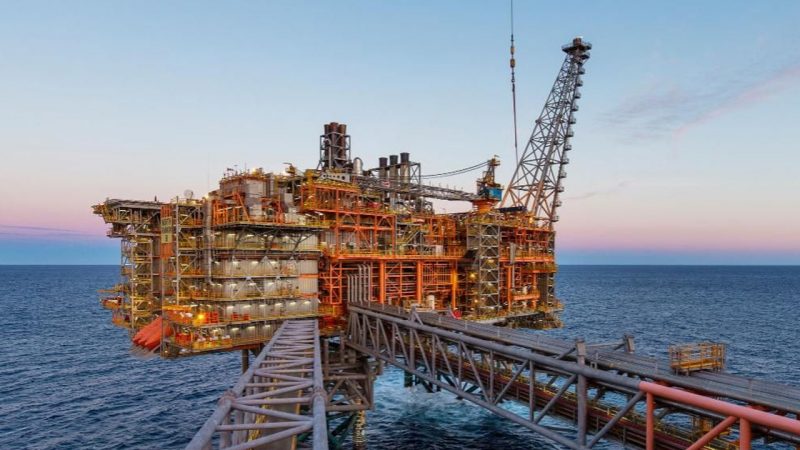This week, reports suggested Woodside (ASX:WDS) has nearly come to the end of its due diligence period assessing the potential Santos (ASX:STO) buyout.
Were it to go ahead, that would ultimately make Woodside an even larger energy supermajor.
That growth would come not long after Woodside completed its merger with BHP Petroleum a few years ago, a move that pushed its market dominance higher.
Not that there’s anything wrong with that, and not that consolidation in the energy sector is unusual.
Canberra hasn’t seen formal proposal
Two big regulatory uncertainties do hang over the Woodside Santos merger when considering the ACCC and the Takeovers Panel.
That ultimately translates into one big uncertainty – whether the deal will go ahead at all.
Because no official bid has been made, we’ll need to see how both companies expect to play the proposed deal.
Only then can we expect to get an idea of what Canberra might think.
And that’s just looking at the government landscape. But this concern overlooks another: uncertainty among the shareholders.
Santos shareholders not loving it
- Santos boasts a market cap of $25 billion
- Woodside’s market cap is $60 billion
- Woodside’s one-year returns are down 12.4 per cent
- Santos shareholders see their one-year returns up 7.88 per cent
Both of these price movements need to be contextualised through the lens of COVID-era macro.
Both companies were beneficiaries of, and continue to be high oil and gas prices.
As those prices have moderated from 2022 highs, a fall in returns per the WDS stock isn’t entirely unusual.
Santos shareholders are ultimately unsure whether or not they will get the premium they want if Woodside snatches them up.
Santos to get “modest” deal: O’Neill
So it probably didn’t help anyone holding STO to get excited when Woodside CEO Meg O’Neill last week told the media Santos shareholders should anticipate a “modest” premium.
Energy merger premiums around the world typically reflect somewhere around 10 per cent.
Santos shareholders are expected to want more, basically to compensate for greener-grass considerations.
In layman’s language: how do Santos shareholders know they can’t get more money in the long run by letting STO grow on its own?
From the other end, WDS shareholders are likely to have their own concerns about a Woodside Santos merger.
While WDS benefits from a global operational footprint and a fairly healthy gas trading division, STO’s recent issues at getting projects off the ground (or engaging with Traditional Owners) could startle some more ESG-leaning investors.
And then you’ve got the bigger and more obvious ESG concern – producing what would likely become the largest domestic emitter in Australia if not the biggest overall.
Scope 3 emissions reporting risk
We won’t know the total GHG profile of Woodside until it is forced to begin reporting Scope 3 emissions, which could happen this year.
ASIC last year called the changes “the biggest to corporate reporting in a generation”.
Scope 3 emissions are those caused by Woodside’s hydrocarbon products out in the real world.
So, let’s say WDS sells oil to a retailer that sells it to a service station.
Scope 3 emissions, which Woodside will now need to calculate, relate to those emissions caused by the cars that buy the fuel, drive around, and burn it.
There’s a reason the industry is fiercely opposed to reporting these risks: it opens them up to climate lawsuits.
Climate lawsuits picking up
Shell is widely perceived to have shifted its headquarters to the UK from the Netherlands in recent years not to streamline operations as it said but in fact to evade a climate ruling from The Hague which would ultimately cause Shell to pay billions.
At the same time, Exxon is currently suing activist shareholders in the US.
It reports those shareholders have a “radical agenda”, while those shareholders, of course, say Exxon is showing radical disregard for the environment.
Crude oil had a bull run through COVID-19 as the world forgot about going green.
The same is equally true for gas, if not more so, given the global prominence of gas-fired power stations.
But with COVID ever fading, supply chains getting back to relative normality, and COP28 bringing ESG back to the fore – UBS analysts predict ESG considerations to bounce back this year.
The Business & Human Rights Centre has also released an analysis including predictions that climate lawsuits will continue to grow this year.
One pretty good target would be any new Australian energy giant.
Especially once activists get their hands on Woodside’s Scope 3 emissions.

